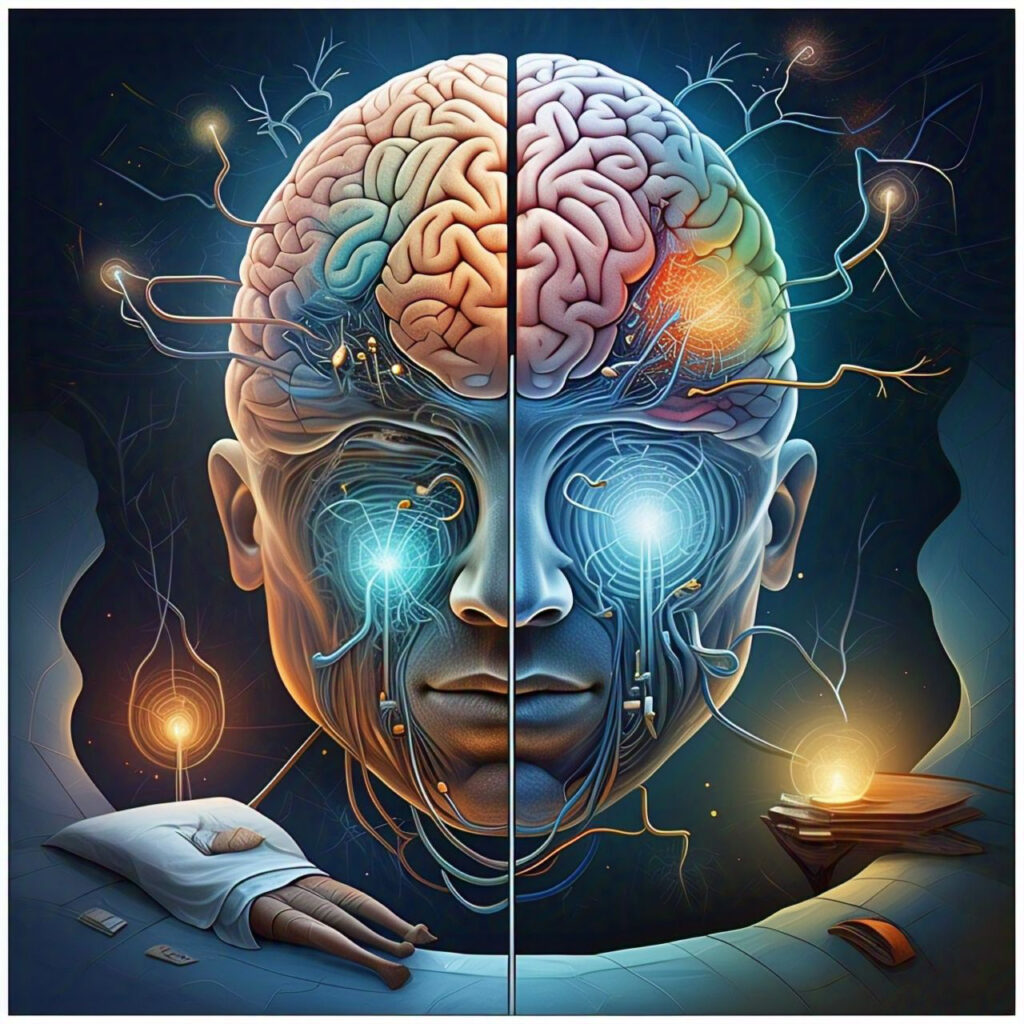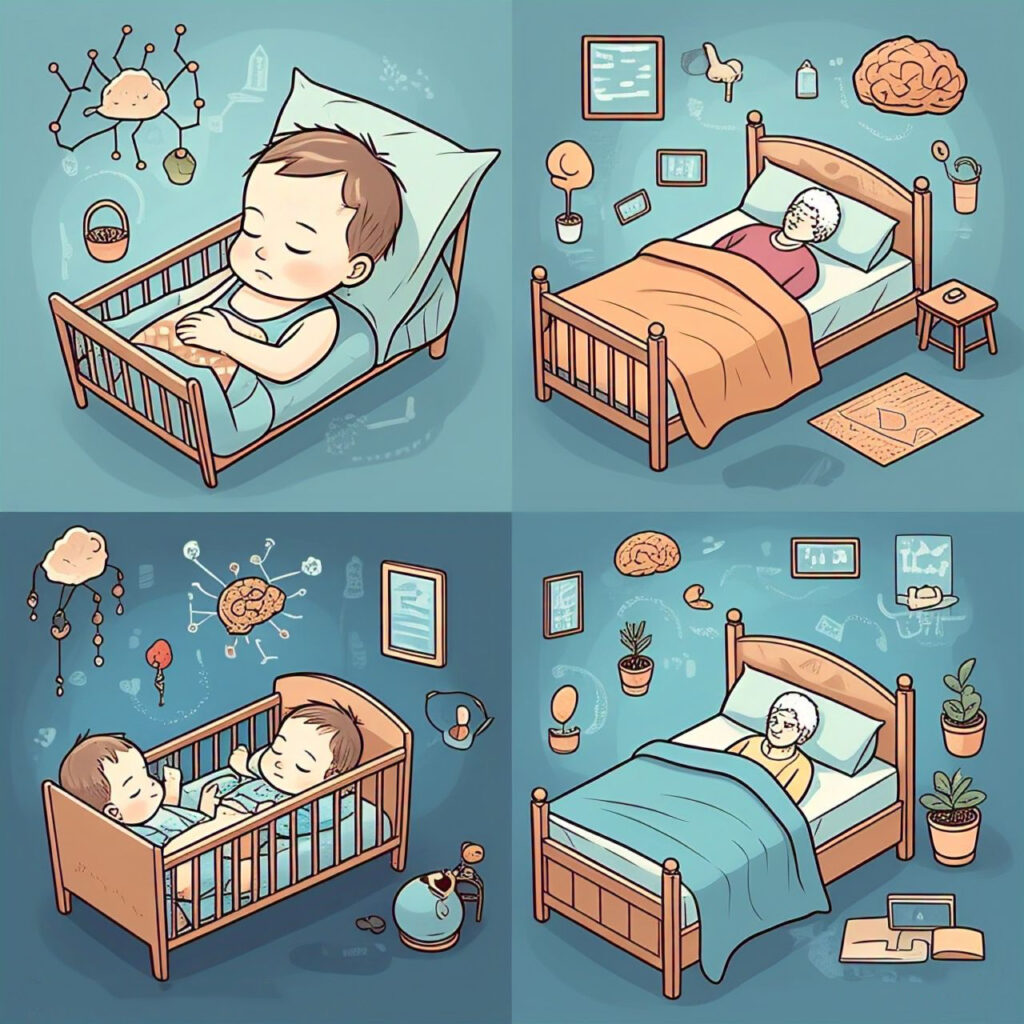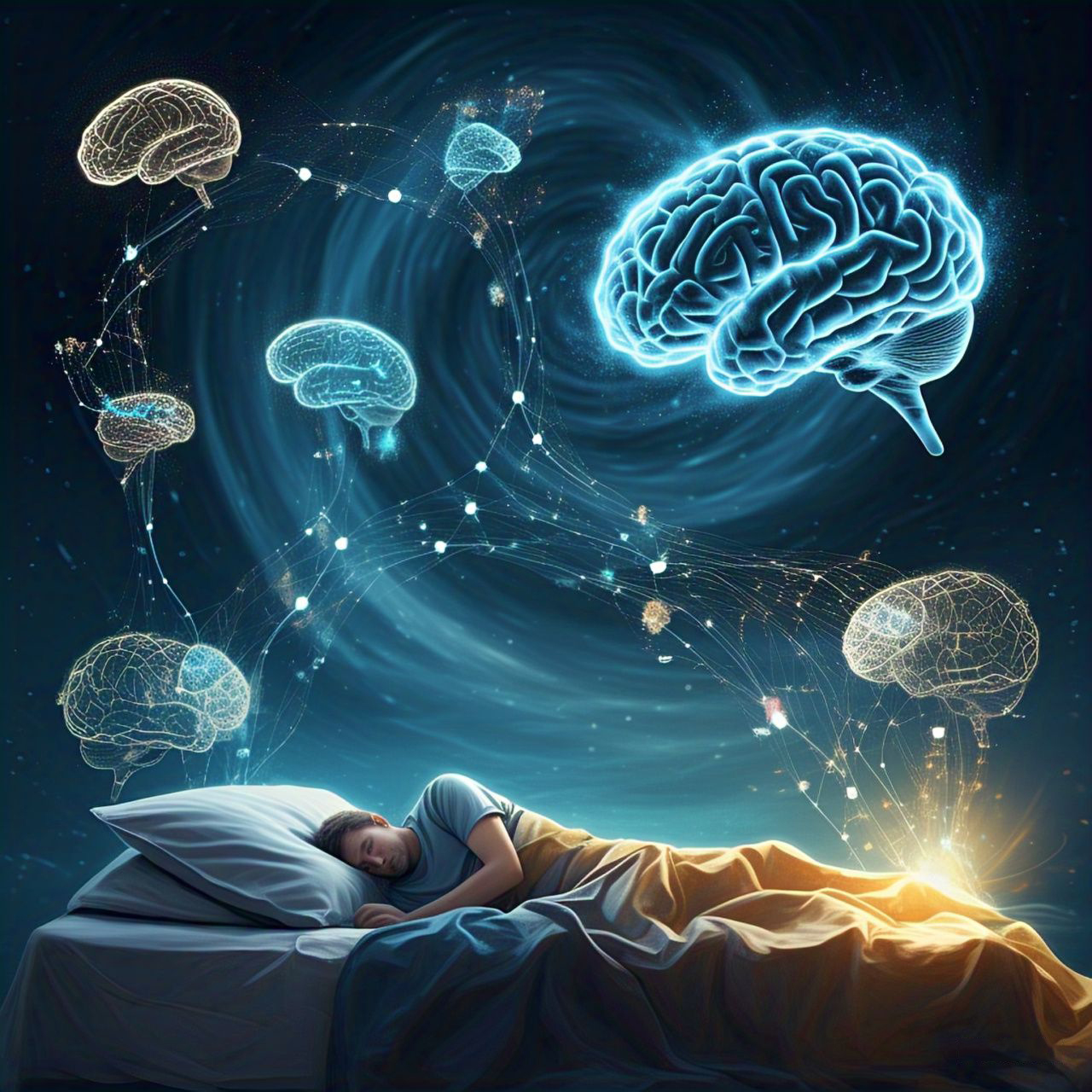Sleep is an essential biological function that plays a vital role in maintaining overall health. It is crucial for cognitive processes, emotional regulation, and brain function. However, in today’s fast-paced world, sleep is often neglected, leading to mood disturbances and impaired cognitive abilities. This blog explores how sleep affects mood and brain function, emphasizing the importance of good sleep hygiene.
The Science of Sleep
Sleep is a complex physiological process controlled by the brain’s circadian rhythm and sleep-wake cycle. It consists of different stages:
- Non-Rapid Eye Movement (NREM) Sleep: This stage has three phases, transitioning from light sleep to deep sleep.
- Rapid Eye Movement (REM) Sleep: This is the dreaming stage, crucial for memory consolidation and emotional processing.
Each stage plays a role in brain function and mood regulation, and disruptions in these stages can lead to cognitive and emotional problems.
How Sleep Affects Mood
1. Emotional Stability
Sleep deprivation can make individuals more emotionally reactive and less capable of handling stress. Lack of sleep affects the amygdala, the part of the brain responsible for processing emotions, making individuals more prone to anxiety, depression, and irritability.
2. Increased Risk of Mood Disorders
Chronic sleep deprivation has been linked to mood disorders such as depression and anxiety. Studies show that individuals who suffer from insomnia are more likely to experience major depressive episodes. Sleep helps regulate neurotransmitters like serotonin and dopamine, which play a key role in mood stability.
3. Irritability and Stress
Poor sleep can make minor inconveniences feel overwhelming. Sleep-deprived individuals tend to have a lower frustration tolerance and higher levels of perceived stress.
4. Reduced Emotional Resilience
Adequate sleep helps individuals bounce back from negative experiences. When sleep is compromised, emotional resilience decreases, making it harder to cope with life’s challenges.

How Sleep Affects Brain Function
1. Memory and Learning
Sleep is crucial for memory consolidation. During deep sleep, the brain processes and stores new information, making it easier to recall. Lack of sleep impairs concentration, problem-solving skills, and decision-making abilities.
2. Cognitive Performance
Insufficient sleep slows down brain function, making it difficult to focus and retain information. Research suggests that sleep-deprived individuals perform tasks with lower accuracy and speed than those who are well-rested.
3. Creativity and Problem-Solving
REM sleep, the stage associated with dreaming, enhances creativity and innovative thinking. Without enough REM sleep, individuals may struggle to come up with creative solutions.
4. Brain Detoxification
During sleep, the brain eliminates toxins through the glymphatic system. These toxins include beta-amyloid, a protein associated with Alzheimer’s disease. Without proper sleep, these toxins accumulate, increasing the risk of neurodegenerative diseases.
The Impact of Sleep Deprivation on the Brain
1. Shrinkage of Brain Matter
Studies indicate that chronic sleep deprivation can lead to the shrinkage of gray matter in brain regions responsible for memory, decision-making, and emotional regulation.
2. Increased Risk of Neurological Disorders
Poor sleep has been linked to an increased risk of Alzheimer’s, Parkinson’s, and other neurodegenerative disorders.
3. Impaired Decision-Making
Lack of sleep affects the prefrontal cortex, the brain’s decision-making center, making individuals more impulsive and prone to poor judgment.
How to Improve Sleep Quality
1. Develop a Consistent Sleep Routine
Having a consistent sleep schedule helps regulate your body’s internal clock. Going to bed and waking up at the same time every day can improve sleep quality and duration.
2. Create a Comfortable Sleep Environment
A quiet, dark, and cool room can enhance sleep quality. Investing in a comfortable mattress and pillows can also make a significant difference.
3. Limit Exposure to Blue Light
Devices like smartphones and laptops emit blue light, which can disrupt melatonin production, the hormone responsible for sleep. Avoid screens at least an hour before bedtime.
4. Avoid Caffeine and Heavy Meals Before Bed
Consuming caffeine late in the day can interfere with sleep by keeping you alert. Similarly, eating heavy meals close to bedtime can cause discomfort and disrupt sleep.
5. Engage in Regular Physical Activity
Exercise has been shown to improve sleep quality. However, it’s best to avoid intense workouts close to bedtime, as they can be stimulating.
6. Practice Relaxation Techniques
Stress and anxiety can interfere with sleep. Techniques such as meditation, deep breathing, and progressive muscle relaxation can help calm the mind before bedtime.
Sleep Disorders and Their Impact on Mood and Brain Function
1. Insomnia
Insomnia is the inability to fall or stay asleep. Chronic insomnia can lead to depression, anxiety, and cognitive impairment.
2. Sleep Apnea
Sleep apnea is a condition where breathing repeatedly stops and starts during sleep. It can cause daytime fatigue, memory problems, and mood disturbances.
3. Restless Leg Syndrome (RLS)
RLS causes an uncontrollable urge to move the legs, making it difficult to fall asleep. Poor sleep due to RLS can contribute to mood swings and cognitive decline.

How Sleep Impacts Different Age Groups
1. Children and Adolescents
Adequate sleep is essential for growth, development, and academic performance. Sleep deprivation in young individuals can lead to behavioral problems and difficulty concentrating.
2. Adults
For working professionals, sleep is crucial for maintaining productivity and mental clarity. Poor sleep can lead to burnout, reduced efficiency, and emotional instability.
3. Elderly Individuals
As people age, sleep patterns change. Older adults may experience lighter sleep and more frequent awakenings, making it important to maintain good sleep hygiene.
The Relationship Between Sleep and Overall Well-Being
Sleep affects every aspect of health, from mental well-being to physical performance. Individuals who get quality sleep tend to be more focused, happier, and healthier overall. Prioritizing sleep can lead to better emotional regulation, improved cognitive function, and a reduced risk of various health conditions.
Conclusion
Sleep is a fundamental aspect of mental and cognitive health. Poor sleep can negatively impact mood, leading to stress, anxiety, and depression. It also hinders brain function, affecting memory, creativity, and decision-making. Prioritizing good sleep hygiene is essential for maintaining emotional stability and cognitive performance. By understanding the relationship between sleep, mood, and brain function, individuals can make informed lifestyle choices to improve their overall well-being. Getting enough quality sleep is not a luxury—it is a necessity for a healthy and fulfilling life.





